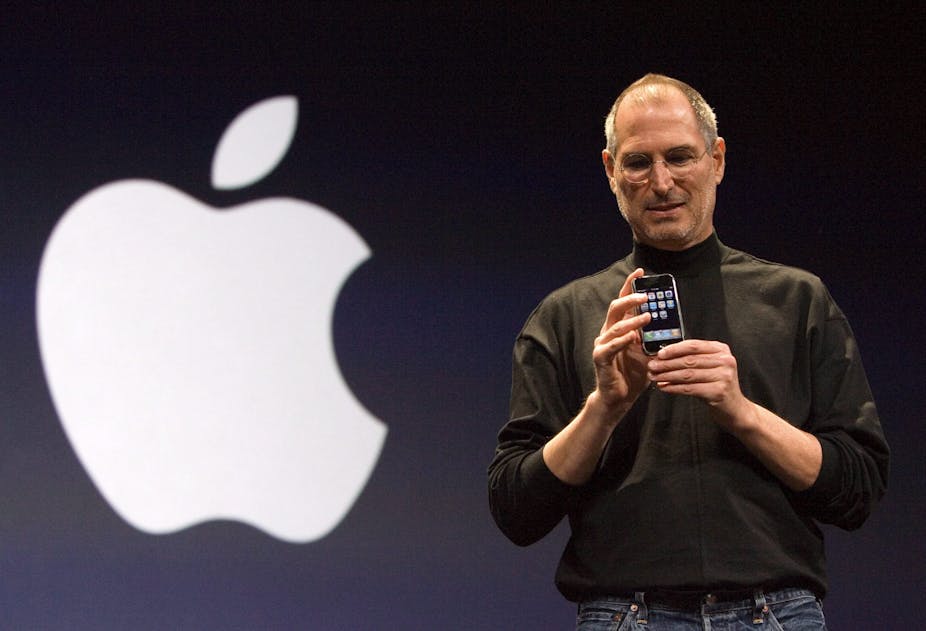The Life and Legacy of Steve Jobs: The Visionary Who Changed the World
Introduction
The name Steve Jobs is synonymous with innovation, creativity, and entrepreneurship. He was an American business magnate, inventor, and co-founder of Apple Inc., who revolutionized the personal computer industry, music industry, and mobile industry. Jobs was a visionary leader who changed the world with his innovative products, such as the iPhone, iPod, and iPad. In this article, we will explore the life and legacy of Steve Jobs and how his contributions have transformed the world we live in.
Early Life and Education
Steve Jobs was born in San Francisco, California, in 1955. He was adopted by Paul and Clara Jobs, who encouraged his interest in electronics from a young age. Jobs attended Homestead High School in Cupertino, California, where he met Steve Wozniak, his future business partner. Jobs went to Reed College in Portland, Oregon, but dropped out after six months. He then traveled to India to seek spiritual enlightenment and returned to California to work with Wozniak on their first computer, the Apple I.
Career and Achievements
In 1976, Steve Jobs and Steve Wozniak founded Apple Computer Inc. in the Jobs family garage. Their first product was the Apple I, which was a kit computer that was sold to hobbyists. Jobs and Wozniak went on to create the Apple II, which was the first mass-produced personal computer with a color display. The Apple II became a huge success and made Apple a household name.
In 1984, Jobs introduced the Macintosh, which was the first personal computer to have a graphical user interface. The Macintosh was a game-changer for the personal computer industry and established Apple as a leader in the market. However, Jobs left Apple in 1985 after a power struggle with the board of directors.
After leaving Apple, Jobs founded NeXT Computer Inc., which was focused on creating high-end computers for the education and business markets. NeXT was not a commercial success, but its technology was used by Apple when Jobs returned to the company in 1997.
In 1997, Jobs returned to Apple as CEO and started a turnaround that would make the company one of the most valuable in the world. Jobs introduced a series of innovative products, such as the iMac, iPod, iPhone, and iPad, that revolutionized the music industry, mobile industry, and personal computer industry. Jobs was also responsible for the development of the iTunes store, which transformed the music industry by offering a legal and convenient way to purchase music online.
Jobs was a master of product design and marketing, and he had an obsession with simplicity and elegance. He believed that great products were a result of a combination of technology, design, and liberal arts. Jobs was also a perfectionist who demanded excellence from himself and his team, which sometimes led to conflicts and disagreements. However, his vision and leadership transformed Apple into a company that was known for its innovative and beautiful products.
Legacy
Steve Jobs passed away on October 5, 2011, at the age of 56, after a long battle with pancreatic cancer. Jobs' contributions to the technology industry have transformed the world we live in. His products have changed the way we listen to music, communicate with each other, and access information. Jobs was a visionary leader who had a passion for technology, design, and innovation.
Jobs' legacy is also evident in the way Apple continues to innovate and create beautiful and intuitive products. Apple's success is a testament to Jobs' vision and leadership, and the company remains one of the most valuable in the world. Jobs' impact on the technology industry and the world at large cannot be overstated, and his contributions will be remembered for generations to come.
In addition to his impact on the technology industry, Steve Jobs was also known for his famous speeches and presentations. Jobs was a gifted storyteller who was able to inspire and motivate people with his words. His presentations were masterpieces of design, simplicity, and clarity, and he had a unique ability to connect with his audience.
One of Jobs' most famous speeches was his commencement address at Stanford University in 2005. In this speech, Jobs shared his personal experiences and reflections on life, work, and mortality. He urged the graduates to pursue their passions and to follow their hearts, even if it meant taking risks and facing failure. This speech has become a classic and is still viewed as one of the most inspiring and thought-provoking speeches of all time.
Steve Jobs was also known for his philanthropic work. In 1986, he founded the Steven P. Jobs Foundation, which focused on providing support and resources to educational organizations. Jobs was also a supporter of environmental causes and was involved in the development of renewable energy technologies.
Conclusion
Steve Jobs was a visionary leader who changed the world with his innovative products, passion for design, and obsession with simplicity. His contributions to the technology industry have transformed the way we live, work, and communicate. Jobs' legacy is evident in the way Apple continues to innovate and create beautiful and intuitive products.
Jobs was also a gifted storyteller who was able to inspire and motivate people with his words. His speeches and presentations were masterpieces of design, simplicity, and clarity, and he had a unique ability to connect with his audience.
Steve Jobs' life and legacy are a reminder of the power of innovation, creativity, and entrepreneurship. He showed us that anything is possible if we have a vision, a passion, and a commitment to excellence. Steve Jobs will always be remembered as one of the greatest innovators and visionaries of our time, and his contributions to the world will be felt for generations to come.
Labels: Interesting, Technology


0 Comments:
Post a Comment
Subscribe to Post Comments [Atom]
<< Home